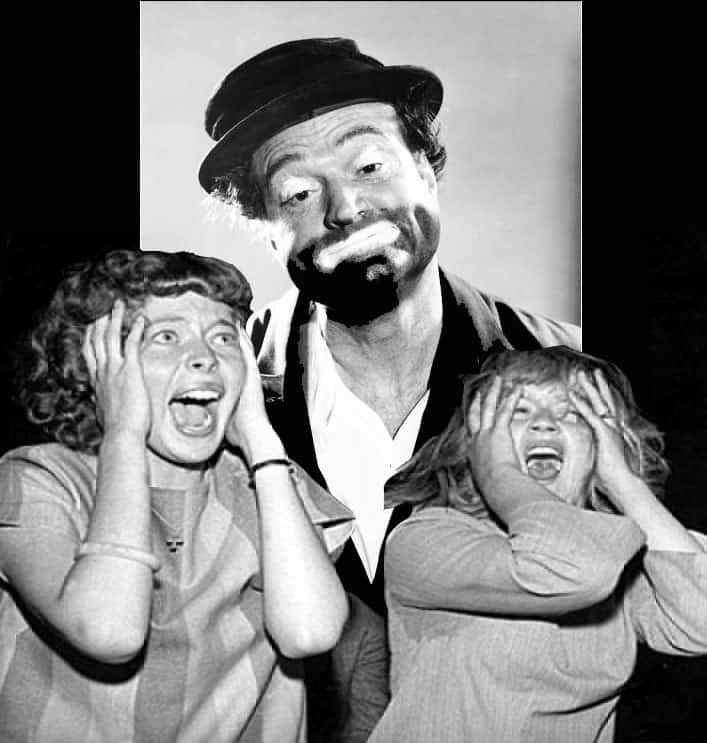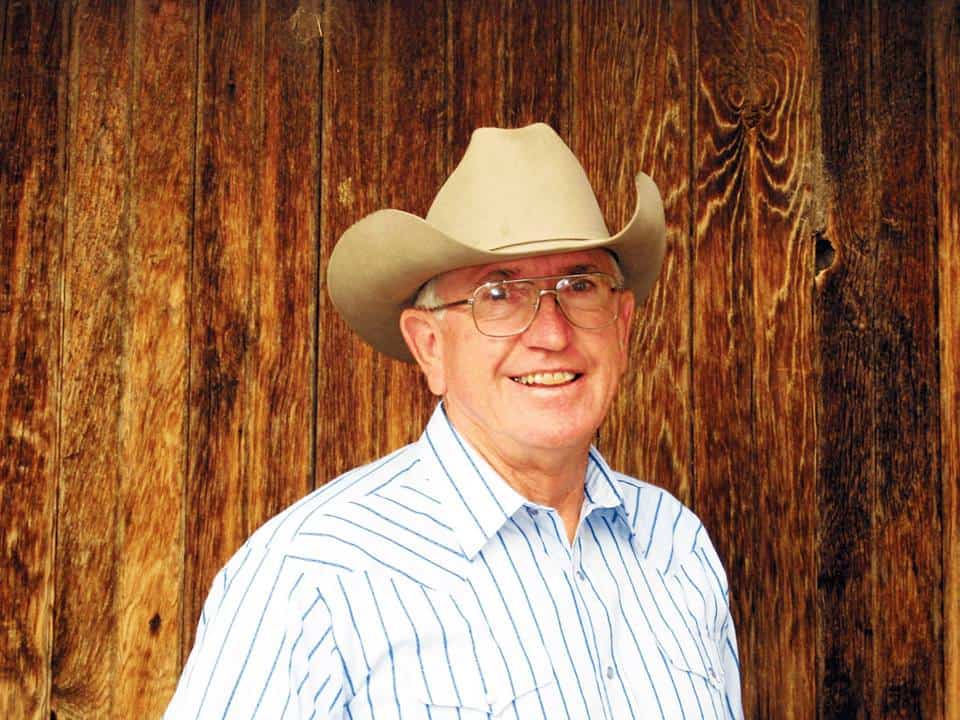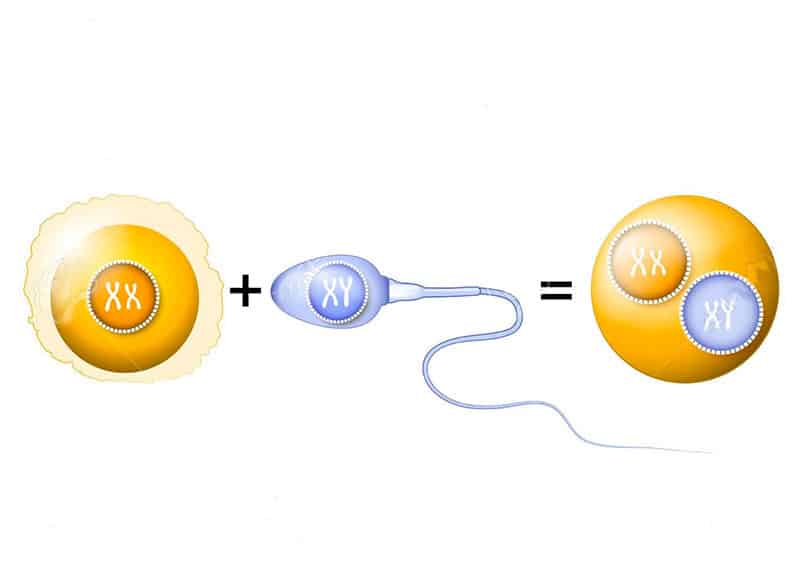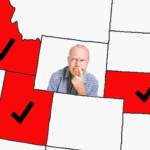Anti-“freeloader” hysteria drives a bipartisan push for Medicaid work requirements
Wyoming’s self-image as a “hard-working state” is useful to legislators who attack public programs like Medicaid by claiming that they benefit “freeloaders.”
Never mind that, in Wyoming, “non-labor income” from investments and retirement payments adds up to more than double the total income earned by workers in the farming, forestry, mining, and oil and gas industries combined.
Not bad for sitting back and collecting a check.
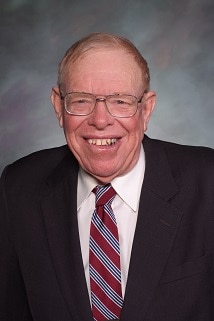
Has Sen. Scott ever scrubbed a toilet? We doubt it.
And never mind that lawmakers who bring up “freeloaders” the most tend to be people like Sen. Charles Scott (R-Casper), a blue-blooded, Harvard-educated “rancher” whose callous-free hands have received tens of thousands of dollars in tax breaks and subsidies for his various agricultural interests.
On Monday, the Senate Health, Labor, and Social Services Committee, which Scott chairs, approved Senate File 144, a bill that would teach a lesson to Medicaid-receiving “freeloaders” by kicking them off the program for a year if they couldn’t prove they work at least 20 hours a week.
“With that type of motivation,” Scott said, “people can find work, and in fact do find work.”
Medicaid expansion + work requirements = work requirements
Elsewhere in the Legislature, the anti-“freeloader” hysteria has attached itself to the most recent attempt to expand Medicaid, with negative effects.
House Bill 244, sponsored by Rep. Andy Schwartz (D-Jackson), would expand Medicaid to roughly 20,000 low-income Wyomingites who currently don’t have access to affordable medical care. But Schwartz and his bipartisan group of cosponsors are apparently trying to “sweeten the deal” for the anti-“freeloader” crowd by attaching a work requirement.
Unfortunately, concessions like this—especially from members of the minority party—are not seen in the Legislature as bargaining chips, but as signs of weakness.
Schwartz and his friends apparently fail to recognize that bashing “freeloaders” is just a useful tool for people like Scott. Lawmakers who oppose Medicaid expansion subscribe to a broad economic philosophy when it comes to poor people, regardless of whether they work—something along the lines of “I’ve got mine, so screw you.”
Concessions like this aren’t seen in the Legislature as bargaining chips, but as signs of weakness.
Just as they have for the past six years, this new effort to expand Medicaid in Wyoming will fail. But by attaching a work requirement, Schwartz and his cosponsors have moved the bar in terms of what’s acceptable when it comes to public assistance.
Sanctioning work requirements for Medicaid—even in the context of expansion—gives credence to bullshit hysteria about “freeloaders.” As a result, it weakens the overall argument that, in Wyoming, if someone needs medical treatment, they should simply have an affordable means of getting it.
A grocery store epiphany

Sen. Hicks with some hard-earned groceries
On Monday, Sen. Larry Hicks (R-Baggs) told the Senate Labor Committee that he had decided to sponsor SF-144, the Medicaid work requirements bill, while he was at his local grocery store.
Hicks said he was in the checkout line behind a “6-3, 220-pound young man who is perfectly healthy and very well-known in the community,” and who used food stamps to buy his groceries.
Hicks said when he reached the head of the line, the cashier—a grandmother who works part-time so she can provide for her grandchild—asked him, “How does that happen? How does a perfectly able young man get on these kind of [welfare] programs?”
Disgusted, Hicks vowed then and there to do something. He decided to gun for “freeloaders” on Medicaid, since Wyoming law already forces people who get food stamps via the federal SNAP program to prove they work.
Of course, Hicks neglected to mention that, since the young man in question was using food stamps, he must have already proven that he has a job, or he wouldn’t have been able to get assistance.
Hicks also already brought a Medicaid work requirements bill last year, which suggests his grocery store story, in general, was a sham.
There is no “freeloader” epidemic
Hicks’ moronic story, in fact, illustrates one of the main problems with work requirements for public programs: there simply is no widespread epidemic of “freeloaders” in Wyoming, and using the specter of “freeloaders” to attack public programs hurts people who really need them.
To put it in context, roughly 60,000 people in Wyoming receive Medicaid. But only 3,000 or so would not be exempt from work requirements because they’re children, elderly, or disabled.
“Most recipients who aren’t children or the elderly are already working, but they’re working for low wages in unstable jobs with volatile work hours and limited leave options.”
Meanwhile, Medicaid expansion would open the program up to an additional 20,000 or so people. But the reason those people don’t qualify right now is that—get ready for it—they already have jobs and earn too much.
Chris Merrill, executive director of the Equality State Policy Center, explained to the Senate Labor Committee on Monday that work requirements pose the greatest threat not to “freeloaders,” but to people who work crappy jobs in uncertain industries.
“Most recipients who aren’t children or the elderly are already working, but they’re working for low wages in unstable jobs with volatile work hours and limited leave options,” he said. “They use SNAP and Medicaid as supports to help them stay afloat, whether working or between jobs.”
The fact people can’t find steady and reliable work “isn’t some failure of motivation,” Merrill said. “The problem is that the labor market for low-wage workers is very challenging and unpredictable.”
Regardless, under SF-144, if a person’s job drops them to under 20 hours a week, they could lose Medical coverage for a year.
This would apply, for instance, to Amanda Barnes, who Better Wyoming profiled recently in our “State of Insecurity” series. Barnes works as a hotel housekeeper. But low pay and fluctuating hours means that she depends on SNAP to feed her kids and Medicaid for their healthcare. If she lost her job and couldn’t quickly find a new one, she could lose access to public support.
Less Medicaid = more costs to hospitals and other patients
Testifying against Hicks’ Medicaid work requirements bill last year, Wyoming Department of Health Director Tom Forslund explained that three-quarters of the people who it targeted were much like Barnes: women with children who make less than $900 a month.
On Monday, Josh Hannes, vice president of the Wyoming Hospital Association, reminded the Senate committee that for whatever reason people don’t comply with the Medicaid work requirements and their services are discontinued, “Those needs don’t go away.”
Three-quarters of the people that work requirements would target are women with children who make less than $900 a month.
In other words, if a person is kicked of Medicaid, their medical problems remain. They’ll likely end up at the emergency room, where the cost of their treatment will be absorbed by the hospital and other patients.
“If this [work requirements bill] is meant to help people to get to work or develop skills,” Hannes said, “there needs to be other supports in place to do that.” He mentioned transportation, childcare, and tuition assistance. “They don’t appear to be anywhere in this bill,” he said.
Hicks said the bill “contemplates” providing such help with revenue that the state saves from ferreting out “freeloaders.”
Haas reminded Hicks that, even in that case, such relief would be after-the-fact. Medicaid recipients would be expected to meet the new work requirements without any assistance available from the state.
According to the Hicks’ bizarro logic, people would have to be thrown off the system to get help.

